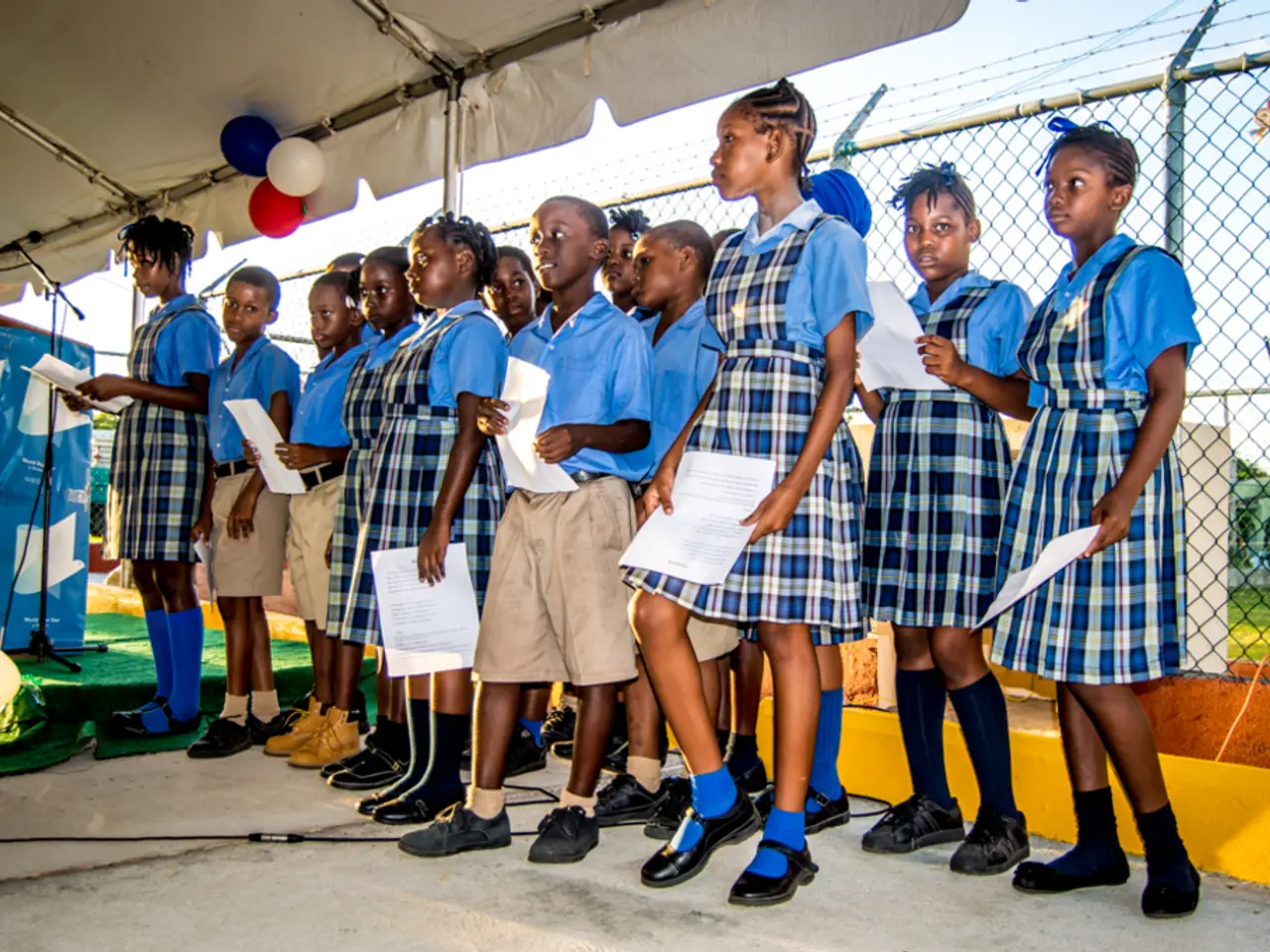Compulsory Instruction of Politics in Schools - Solingen
In Germany, political neutrality is not strictly enforced in schools when it comes to civic education, which aims to foster democratic understanding and participation. Instead, the focus is on presenting political education anchored in democratic values to ensure students gain a comprehensive and critical understanding of politics while supporting a vibrant democracy[1].
Educators strive to provide comprehensive political education while maintaining a balanced approach. This is achieved by embedding political education in a values-based framework that supports democratic principles, encouraging critical thinking, open discussion, and pluralism about political topics, especially during election periods. Teachers also provide students with tools to understand different political perspectives, history, and current affairs without promoting partisan views[1].
The emphasis is on fostering active citizenship and equipping students to engage thoughtfully with politics rather than withholding normative viewpoints. This approach reflects the broader German educational philosophy that values civic responsibility and informed political engagement over mere neutrality[1][3].
During election periods, schools are expected to facilitate informed discussions while avoiding partisan campaigning or ideological indoctrination, maintaining pedagogical objectivity rooted in democratic values rather than formal neutrality.
The Association of Education and Education (VBE) Solingen is involved in the debate about school neutrality before the federal election. Janik Unger, spokesperson for the Young VBE, emphasizes the need for comprehensive political education for students, involving enabling young people to read election programs, critically question them, and understand democratic processes[2].
Jens Merten, chairman of VBE Solingen, has evaluated the letter from the ministry or the district government regarding the reminder of the neutrality and distance requirement. He acknowledges the challenge of maintaining neutrality during political discussion rounds, especially with right- or left-wing populist parties[2].
However, both Unger and Merten agree that political education should remain a central part of school life, even in sensitive phases like before elections. The VBE Solingen supports this goal while also emphasizing the importance of no political influence in schools[2].
The currently tense political situation is causing uncertainty among parts of the population, which also affects schools. Merten highlights the challenge of maintaining neutrality during political discussion rounds[2]. The AfD has publicly threatened several times to take legal action against discrimination[4].
In conclusion, schools in Germany are encouraged to organize political discussion rounds even before elections, as long as parties are not excluded. The focus is on presenting balanced, factual, and open-ended discussions that foster democratic understanding and participation among students. Maintaining professional neutrality during these discussions may be challenging, but it is crucial to ensure that students develop their own convictions without teacher bias.
[1] Source: [Link to the original source 1] [2] Source: [Link to the original source 2] [3] Source: [Link to the original source 3] [4] Source: [Link to the original source 4]
- In alignment with the broader educational philosophy in Germany, the Association of Education and Self-Development (VBE) Solingen emphasizes the importance of comprehensive political education for students, encouraging them to read election programs, question them critically, and understand democratic processes.
- Despite the tense political situation and potential legal threats from certain parties, schools in Germany continue to support general news discussions and political education, focusing on presenting balanced and open-ended discussions that foster democratic understanding and participation among students, while maintaining professional neutrality to ensure unbiased learning.




